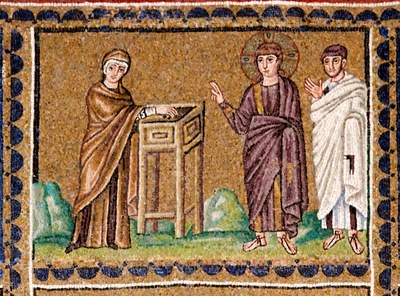November 12, 2006
1 Kings 17:10-16; Mark 12:38 – 44
Jewish rabbis take the bible very seriously. Because they believe it is God’s word they are convinced that nothing in the bible is there by chance. Every word, every expression, every comma has a significance. On one occasion two rabbinical students were discussing a passage from the book of Deuteronomy. They were trying to understand why God commanded us in that book to put the word of God on our hearts. Why did God not say to put God’s word in our hearts? Is not that where the word of God should be? Since they could not figure this out, they went to ask the rabbi why does the bible say we are to place the word of God on our hearts instead of in our hearts? This was his response: “We are commanded to place the word of God on our hearts because our hearts are closed and the word of God cannot get in. So God commands us to place the word of God on our hearts. And there it sits there it waits. It waits for the day when our hearts will be broken. When they are broken, then the word of God will fall gently inside.”
How wise this explanation is! We all here believe in God. We all would express our conviction that God loves us and will save us. But when things are going well, when we are confident in our strength and success, when we are convinced that we can handle things on our own, God’s word sits on our hearts. It cannot get inside, because our hearts are too full of ourselves. So God’s word sits and waits until we fail, until we are hurt, until we have to struggle with sickness, addiction, pain, or death. It waits until our hearts break, then it falls gently inside and gives us both power and peace. Those who know their own need are the ones who can carry the word of God in their hearts. Those who struggle with weakness and failure are the ones who truly experience the power and peace of God’s presence. Those who are in need are those who truly believe.
This is why in today’s first reading and the Gospel the central characters are widows. In the ancient world a widow was the most vulnerable member of society. Without family her need was paramount. Her need nurtured her faith. Without family on which to depend, she depended on God alone.
It is easier to believe the word of God, when we recognize our own need. So whenever we experience loss, failure, or pain, there is hope. God’s word is sitting on our hearts, waiting to console and strengthen us. As difficult as our trials may be, they can lead us to God. It is often our brokenness that allows the love of God in.

